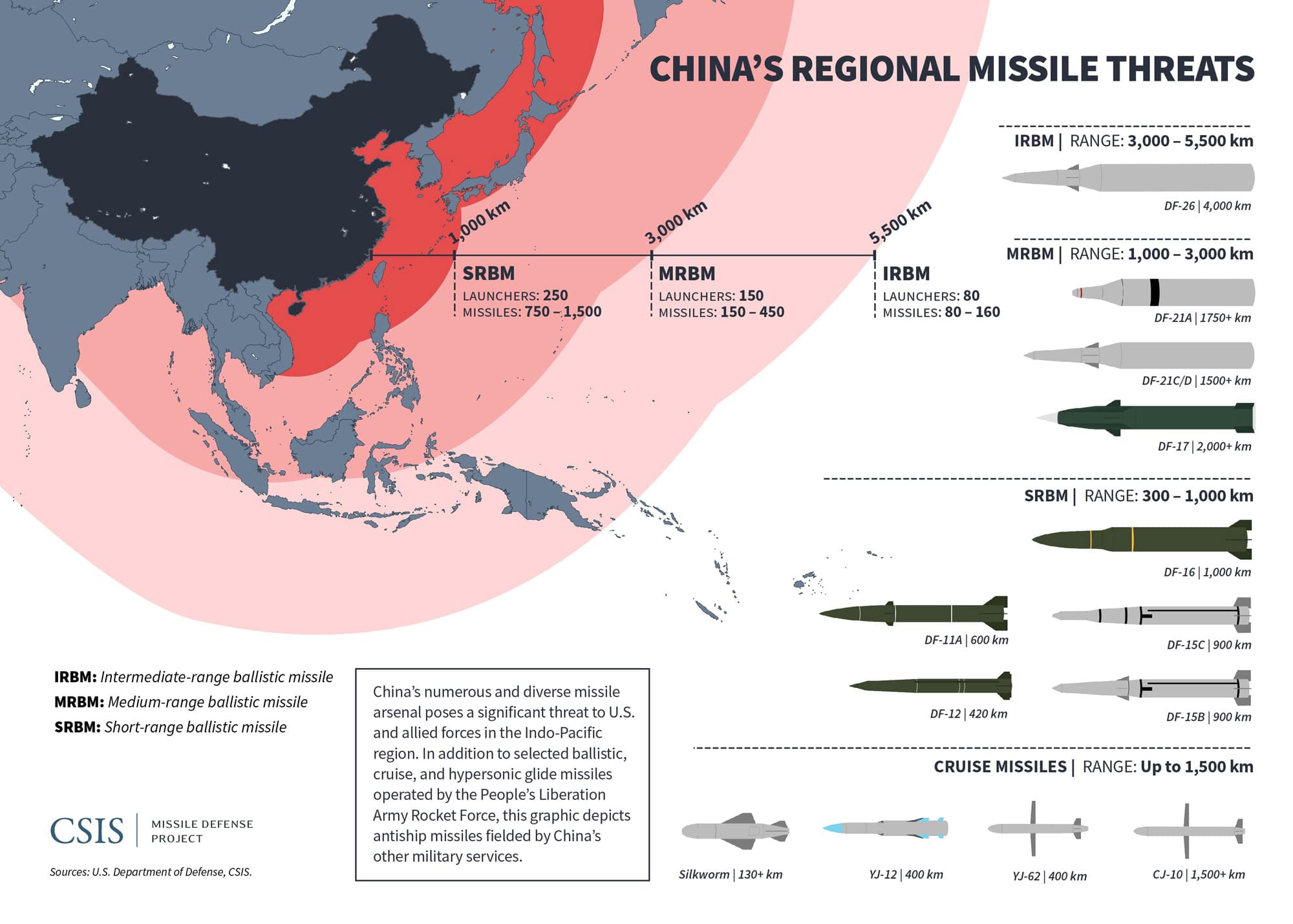Philippines Should Remove Missiles From South China Sea: China's Demand

Table of Contents
China's Rationale Behind the Demand
China's demand for the removal of Philippines missiles stems from its assertion of sweeping sovereignty over most of the South China Sea, a claim largely disputed internationally. Beijing views the presence of these missiles as a direct threat to its perceived interests and security in the region. This perspective is fueled by several key factors:
-
Assertion of sovereignty: China bases its claim on a historical interpretation of its "nine-dash line," a demarcation on maps that encompasses vast swathes of the South China Sea, encompassing areas within the Philippines' Exclusive Economic Zone (EEZ). This historical claim, however, is not universally recognized under international law.
-
Perceived threat to Chinese interests and security: China sees the missiles as a potential impediment to its economic activities in the region, including fishing and energy exploration. Furthermore, the presence of these defensive systems is interpreted as a direct challenge to China's growing naval presence and strategic ambitions.
-
Desire to maintain regional dominance: China's assertive stance in the South China Sea is part of a broader strategy to establish itself as the dominant regional power. The removal of the Philippines' missiles would significantly enhance China's control and influence in the area.
-
Claims the missiles violate international law and agreements: China argues that the deployment of missiles violates various international laws and agreements, further fueling its demand for their removal. However, the Philippines counters that it is acting within its rights to defend its sovereign territory.
However, China's claims are not universally accepted. The 2016 Permanent Court of Arbitration ruling in The Republic of the Philippines v. The People's Republic of China case rejected China's expansive interpretation of its historical rights and the nine-dash line. This ruling, while not binding on China, provides a strong counter-argument to China's claims and reinforces the international legal basis for the Philippines’ defense of its maritime territory.
The Philippines' Position and Strategic Justification
The Philippines justifies its deployment of missiles in the South China Sea as a crucial measure to protect its sovereign territory and its exclusive economic zone (EEZ) from further encroachment by China. This strategic decision is motivated by several factors:
-
Protection of its sovereign territory and EEZ: The Philippines asserts its right to defend its legally recognized maritime territories, including areas within its EEZ, against unauthorized incursions and activities.
-
Response to perceived Chinese aggression and incursions: The Philippines cites a history of increasingly assertive actions by China, including the harassment of Filipino fishermen and the construction of artificial islands within disputed areas. The missiles serve as a deterrent against further such actions.
-
Deterrence against further encroachment: The presence of these defensive systems is intended to dissuade further Chinese aggression and encroachment upon Filipino maritime territory.
-
Alliance commitments with other nations: The Philippines' strategic partnerships, particularly with the United States, necessitate maintaining a robust defense posture to deter aggression.
The economic implications of a conflict are also significant for the Philippines. The South China Sea is a crucial fishing ground and a major shipping lane, and any disruption caused by armed conflict could severely damage the Philippine economy. The Philippines' reliance on external defense partnerships, including the enhanced defense cooperation with the United States, reinforces its commitment to safeguarding its interests.
International Implications and Regional Stability
The ongoing dispute over the Philippines’ missiles has profound implications for regional stability and international relations.
-
Risk of armed conflict and escalation: The continued tension carries a significant risk of accidental conflict or escalation, potentially involving other claimant states in the South China Sea.
-
Impact on freedom of navigation and trade: Any major conflict would severely disrupt freedom of navigation and trade in this crucial waterway, impacting global commerce and potentially triggering an economic crisis.
-
Concerns of other claimant states in the South China Sea: The dispute sets a dangerous precedent for other claimant states, raising concerns about their own security and territorial integrity.
-
Role of international organizations (e.g., ASEAN, UN): The international community, through organizations like ASEAN and the UN, plays a crucial role in mediating and facilitating diplomatic solutions.
The potential for mediation and diplomatic solutions remains paramount. International law, specifically the UN Convention on the Law of the Sea (UNCLOS), provides a framework for resolving such disputes peacefully. However, adherence to international law and respect for arbitration rulings are crucial for effective de-escalation.
Potential Solutions and De-escalation Strategies
De-escalation requires a multifaceted approach that prioritizes diplomatic channels and cooperative measures:
-
Bilateral talks and diplomatic negotiations: Renewed and sincere bilateral talks between the Philippines and China, facilitated by the international community, are critical to address underlying concerns and find common ground.
-
Confidence-building measures: Implementing confidence-building measures, such as joint patrols or communication protocols, could help reduce the risk of miscalculation and accidental conflict.
-
Joint patrols and maritime cooperation: Joint maritime patrols and cooperation on other areas of mutual interest can foster trust and enhance communication between the two nations.
-
International arbitration and legal mechanisms: Existing international legal mechanisms, such as the Permanent Court of Arbitration, offer avenues for resolving disputes peacefully and based on established international law.
Open communication and transparency are vital for reducing suspicion and preventing further misunderstandings. A compromise that addresses both countries' security concerns while respecting international law is achievable, but demands a commitment from all parties involved.
Conclusion
The demand for the Philippines to remove missiles from the South China Sea highlights the complexities of the territorial dispute and the potential for escalation. China's security concerns must be acknowledged, but this cannot come at the expense of the Philippines' right to defend its sovereign territory and EEZ. The risk of armed conflict and its devastating consequences for regional stability and the global economy cannot be ignored.
The ongoing tension surrounding the Philippines' deployment of missiles in the South China Sea demands urgent attention. Finding a diplomatic solution that respects both nations’ concerns is crucial to maintaining peace and stability in the region. We need increased international pressure for dialogue and de-escalation efforts regarding the Philippines and China's dispute in the South China Sea. Continued discussion on finding a solution that addresses the issue of missiles in the South China Sea is vital for preventing further conflict and safeguarding regional security.

Featured Posts
-
 Top Ranked Sabalenka Triumphs Over Mertens In Madrid
May 20, 2025
Top Ranked Sabalenka Triumphs Over Mertens In Madrid
May 20, 2025 -
 Apopsino Epeisodio Tampoy Sto Mega Proepiskopisi
May 20, 2025
Apopsino Epeisodio Tampoy Sto Mega Proepiskopisi
May 20, 2025 -
 Actor Ramon Rodriguez Recounts Uncomfortable Night Three Scorpion Stings On Will Trent Set
May 20, 2025
Actor Ramon Rodriguez Recounts Uncomfortable Night Three Scorpion Stings On Will Trent Set
May 20, 2025 -
 Nyt Mini Crossword Puzzle Solutions March 13
May 20, 2025
Nyt Mini Crossword Puzzle Solutions March 13
May 20, 2025 -
 Festival Da Cunha 90 Gratuito Maiara E Maraisa Se Apresentam Em Manaus
May 20, 2025
Festival Da Cunha 90 Gratuito Maiara E Maraisa Se Apresentam Em Manaus
May 20, 2025
